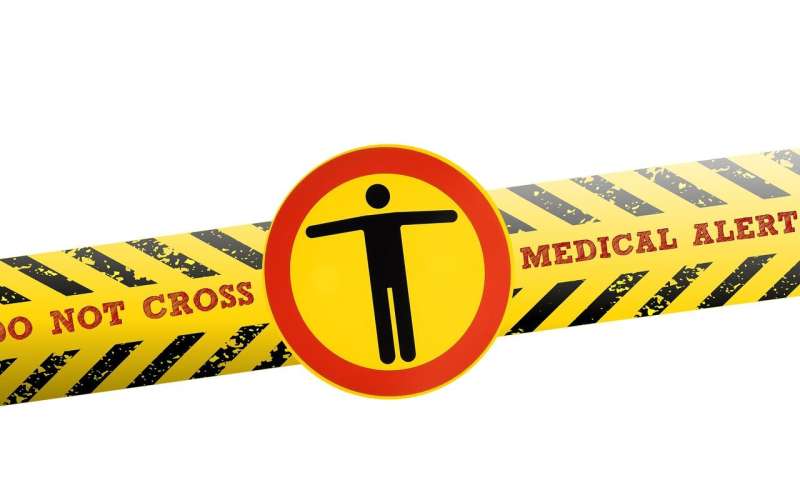
Argentina announced its second coronavirus-related death on Friday as Ecuador reported its first, taking the total death toll in Latin America to five as the virus shows signs of spreading rapidly.
Venezuela, Uruguay, Guatemala and Suriname reported their first cases of the COVID-19 pandemic.
Overall cases in the region have more than doubled in the last two days to over 340 as the Pan American Health Organization (PAHO) warned governments on Thursday to prepare their health services to cope.
Several Latin American countries have tightened restrictions on travel links with Europe, from where many people in the region are descended and still have family.
A 61-year-old Argentine man who returned from Italy on February 24 and had previously suffered from pneumonia died of “respiratory failure,” the Chaco provincial health ministry said in a statement.
Italy is the worst affected country outside of China, where the virus originated.
Argentina reported the first Latin American coronavirus death on March 7.
In Ecuador, a 71-year-old woman who had traveled to Spain died of a “severe respiratory failure,” Health Minister Catalina Andramuno said.
The woman was also the first person in Ecuador to have been diagnosed with the COVID-19 disease.
Bolsonaro tests negative
Following earlier press reports that he had contracted the virus, Brazil’s far-right populist leader Jair Bolsonaro posted a message to his Facebook page saying he had tested negative.
“Don’t believe in the fake news media!” he wrote alongside a picture of him performing an obscene gesture.
Bolsonaro was tested after his communications chief, Fabio Wajngarten, contracted the virus following a trip to the United States in which both men had met US President Donald Trump.
Venezuela announced its first two coronavirus cases: a 41-year-old who had visited the US, Italy and Spain, and a 52-year-old who visited Spain.
Both had returned from Madrid on an Iberian airways flight to Caracas that flies three times a week.
Authorities ordered everyone on that route between March 2-5 into “immediate obligatory preventative quarantine.”
The government suspended all school and university classes and ordered those working at border entry points to wear face masks.
Chile and Mexico joined many other countries in banning large gatherings, while Uruguay said it had registered four cases, three in people who had returned from Milan.
Cuban medical specialists said they have developed an antiviral drug used in China to treat patients that replenishes the human immune system and had received interest from 15 countries in buying it.
But in Bolivia, panic had already started to spread despite just three recorded cases.
People outside hospitals blocked others from seeking treatment, saying the facilities were not equipped to handle coronavirus and that accepting them would spread the illness, local media reported.
Music festivals off
Brazil postponed until December the international Lollapalooza festival due to run from April 3-5 in Sao Paulo.
Santiago and Buenos Aires had previously postponed their festival dates until November.
Rio state closed schools, theatres, sports stadiums and concert halls for two weeks, while Sao Paulo state likewise called off public events.
Uruguay canceled a rock festival in the capital Montevideo that was expected to attract 40,000 fans.
Brazilian also authorities quarantined a Bahamas-flagged cruise ship with 600 people aboard after a 78-year-old Canadian passenger developed a fever, cough and breathing trouble.
Uruguay turned away a cruise ship from its popular tourist resort Punta de Este even though no-one on board was reported as ill.
President Nayib Bukele of El Salvador, which has reported no cases, ordered the army to detain anyone entering the country illegally to try to contain the virus.
Stock markets partially rebounded on Friday after a bruising week.
Brazil’s Sao Paulo exchange climbed almost 14 percent but lost 15 percent overall this week.
Source: Read Full Article
